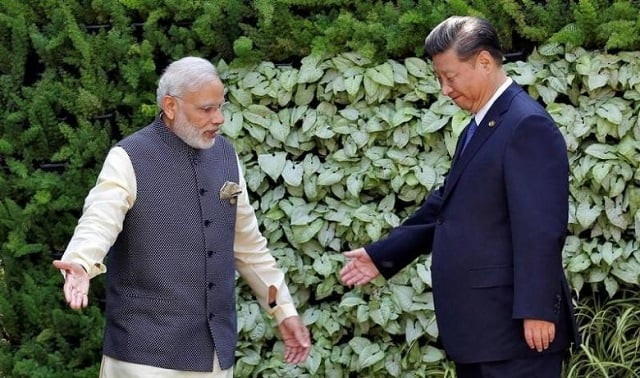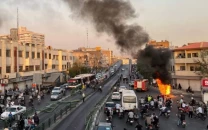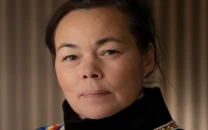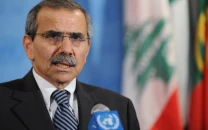China invites India to join OBOR initiative
'Simply put, we always put China first and we deal with problems based on their own merits'

During a recent visit to India, Chinese Ambassador Luo Zhaouhi spoke to an audience at an Indian think tank - the United Services Institute, on Friday where he called upon India to join its One-Belt One-Road [OBOR] project.
The Chinese embassy released his remarks on Monday in which Zhaohui said, "I'm from China, a neighbour of India. Our two countries have thousands of years of friendship and practical common interests, and sometimes, differences and grievances."
He focused on the history and similarities of both the nations and integration of the cultures reminding them of the "Indus River Civilisation, Buddha and the ancient Silk Road," and that they were both part of the four ancient civilisations.
Although there have recently been tensions between both the countries, Prime minister Narendra Modi and President Xi Jinping are to meet each other on the sidelines of summits held by the Shanghai Cooperation Organisation, G20 and BRICS. India, however, still has concerns over OBOR, and feels that it is a cause of concern considering CPEC passes through Azad Jammu and Kashmir.
Road to development : China catalyst for Pakistan’s uplift: CM
Discussing current Indo-Pak tensions, the envoy said that “China has no intention of getting involved in the sovereignty and territorial disputes between India and Pakistan. China supports the solution of the disputes through bilateral negotiations between the two countries. The CPEC is for promoting economic cooperation and connectivity. It has no connections to or impact on sovereignty issues.”
Zhaohui said that the perception of Indian media that China puts Pakistan first and is partial to it over others was erroneous and "not true." He mentioned that China had also taken care of concerns regarding India before the 1990s when it had supported UN resolutions as well as supported a settlement through bilateral negotiation of the Simla Agreement.
"Simply put, we always put China first and we deal with problems based on their own merits," Zhaohui said. He also said that China supports the development of India, "We hope to see India develop well and we are more than happy to help India develop to achieve common development."
Improving relations
Pointing out ways to help improve relations between both countries, he said that, as a first, negotiations for a "treaty of good neighbourliness and friendly cooperation" should be made. Secondly, negotiations on the India-China free trade agreement should be restarted. Thirdly, they should strive to resolve the border issue and lastly, to explore the feasibility of aligning China’s "One-Belt-One-Road Initiative’ [OBOR] and India’s ‘Act East Policy'."
OBOR could provide both countries with fresh opportunities for bilateral cooperation and both countries could be natural partners in connectivity, he said. Zhaohui added that, “In history, we have had close cooperation along the ancient Silk Road. Why shouldn’t we support this kind of cooperation today? In a word, China is sincere in its intention to cooperate with India on the OBOR, as it is good for both of us.”
The envoy focused on the overall region of Pakistan, China and India and asked for 'stability' and a "friendly environment" so that the they could all focus on their development. He further stated that China is willing to "Mediate when India and Pakistan have problems. But the precondition is that both India and Pakistan accept it."



















COMMENTS
Comments are moderated and generally will be posted if they are on-topic and not abusive.
For more information, please see our Comments FAQ